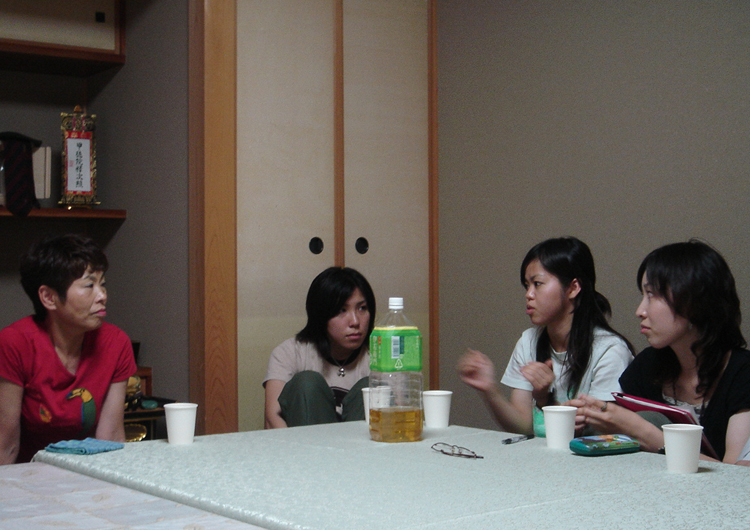
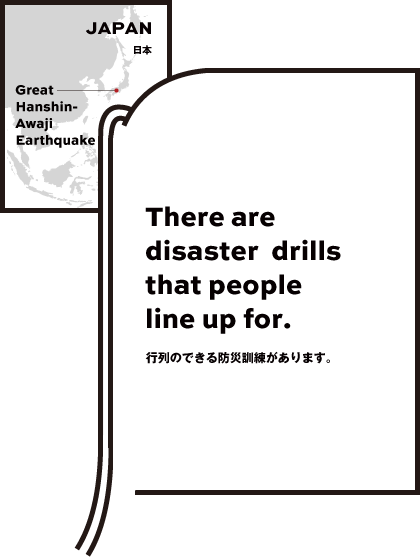 There are disaster drills that people line up for.
There are disaster drills that people line up for.
-

- 災害発生前
- アート
- Hiroshi Fuji
- Artist
- NPO Plus Arts
- Iza! Kaeru Caravan!
Kaekko Bazaar attracted an unprecedented number of people to participate in disaster drills
The Iza! Kaeru Caravan! program is a disaster drill program, where participants can obtain the knowledge and skills necessary for disaster preparedness, while enjoying the program. It was first conducted as an event in the Message from Kobe- Ten Years after the Earthquake project commemorating the recovery from the earthquake, which was carried out over six months from April 2005, with Hyogo Prefecture and Kobe City as the secretariat. More than 3,000 parents and children came to the Green Arena Kobe Stadium, one of the venues for the program, to participate. The number of participants exceeded the expectations of those involved, and there were large crowds of people even outside the stadium.
In general, several issues arise with regard to local disaster drills, for example, the younger generations not participating in the drills, and the participants being the same each time. However, these issues were resolved in this program. This was partly because the event Kaekko Bazaar, which was developed by Hiroshi Fuji, had the power to attract participants.
The Kaekko Bazaar is a system in which children bring toys that they do not want any more to an event venue and exchange them for “Kaeru points”, which are a kind of children’s money unique to the event. Children can exchange their points for other toys. In the event, workshops and play corners are also set up, where “Kaeru points” are issued, aiming at promoting voluntary activities for children. The event has already been held in various areas, gaining much popularity among children.
In the Iza! Kaeru Caravan! program, the Kaekko Bazaar was combined with a disaster drill program, where children could acquire wisdom and skills concerning fire extinguishing and rescue and relief, while enjoying the program as though they were playing games. This has led to the establishment of a disaster drill that children experience in a positive manner.
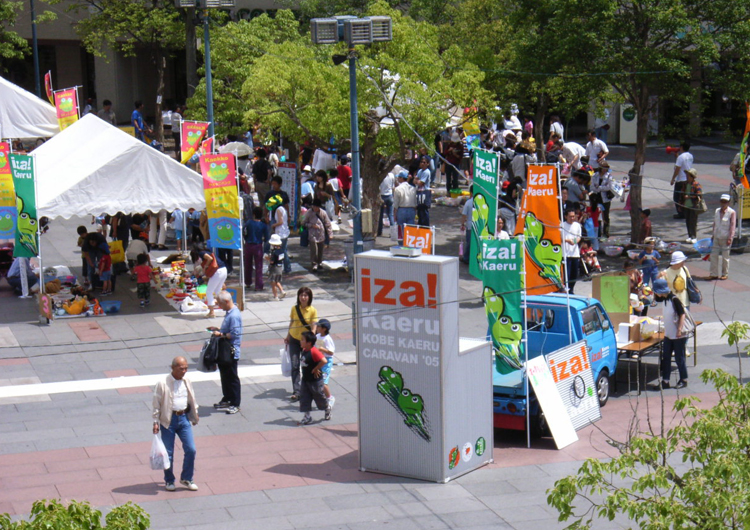
- Many people joining the Iza! Kaeru Caravan program that was first held in 2005
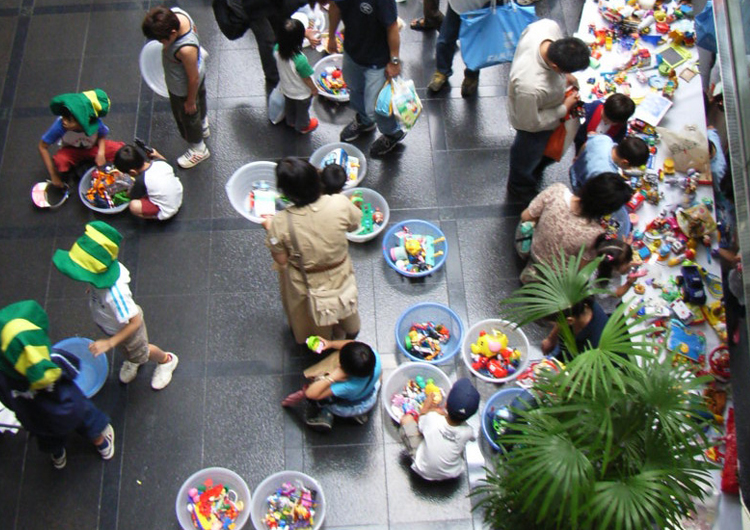
- An array of toys that children brought to the venue. Children can exchange their “Kaeru points” for toys
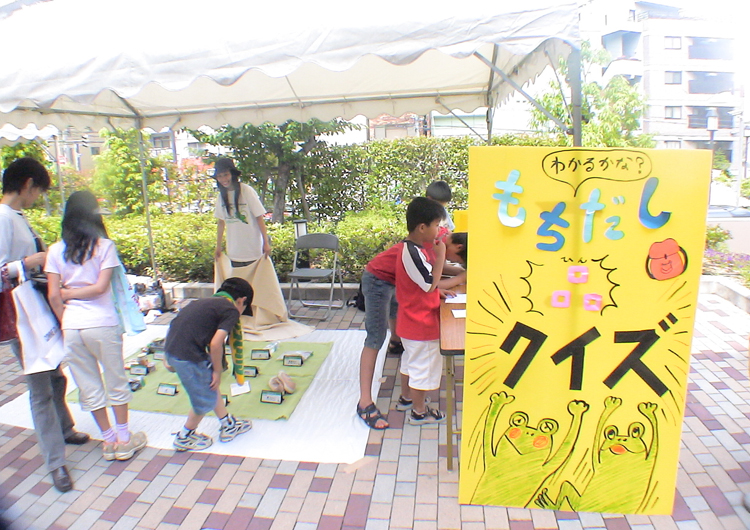
- Children who participate in the disaster drill program can get additional “Kaeru points”
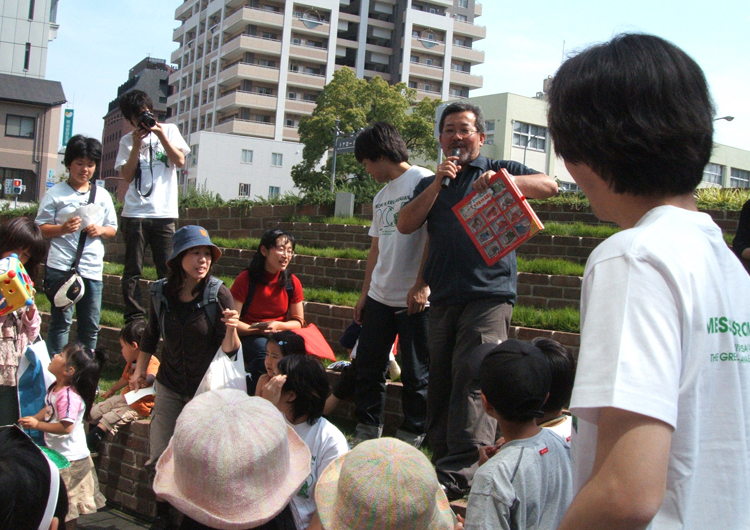
- Children look forward most to the toy auction
Survey disaster survivors
to create new disaster drills
In principle, Kobe City only planned to hold the Kaekko Bazaar. which was developed by Hiroshi Fuji. However, event organiser Hiroshi Fuji and Hirokazu Nagata, shared the view that people should sincerely face the past to acquire wisdom and awareness in order to achieve true recovery. Accordingly, they were determined to develop a new program, which incorporated hands-on games for disaster drills, based on the Kaekko Bazaar system.
They placed the most importance on a survey of disaster survivors in order to create the new program. They were sure that only disaster survivors had the knowledge, skills, and most accurate information truly helpful at a time of a disaster. Therefore, they conducted surveys on approximately 50 disaster survivors together with volunteer students. Disaster survivors talked frankly about how they felt and what was helpful when suffering from a disaster, although they were not able to talk about their experience due to fear and trauma immediately after the disaster. This seemed to be because their suffering had been relieved as ten years has passed after the disaster. Based on these survey results, a disaster prevention program was developed. This stance of placing importance on a survey of those who have been involved in a disaster is still continued in the policies of NPO Plus Arts.
Expand our activities in Japan and beyond, upholding a philosophy that the local community will always be the main actor
Hirokazu Nagata founded NPO Plus Arts in July 2006 to build a platform for continuing the Iza! Kaeru Caravan! program. In September the same year, he carried out the program at a museum of Tokyo Gas Co., Ltd. This was the first time that the program was conducted at a venue outside Kobe City. He also held the JISHIN EXPO in Yokohama in April 2007. These programs received such a great response that staff members were interviewed by the mass media every day.
With these two big events as a start, the Iza! Kaeru Caravan! program has been conducted more than 150 times in 20 prefectures throughout Japan, under the sponsorship of NPO Plus Arts and the joint sponsorship of NPO Plus Arts and companies and local governments, as well as by local organizations with support from NPO Plus Arts, in ten countries overseas.
One of the factors why the program has been so widely conducted is that the program includes a variety of original component programs. There are a total of 22 programs, such as hands-on programs, quizzes, and card games. This provides organizers with many options when holding an event.
Another factor is that one of the aims of the program is that local communities will continue to conduct disaster drills independently. Program operation staff members invite volunteers from local communities to attend lectures in advance so that they can take the initiative in carrying out a program. They sometimes arrange the program and develop original programs according to issues in individual areas. In some areas, the program has been developed independently from the original style, where a mascot character has changed from a frog to animals that are specific to those areas.
The philosophy of NPO Plus Arts that offering know-how is its role, while utilizing know-how is the role of local communities enables the program to be so widely accepted.
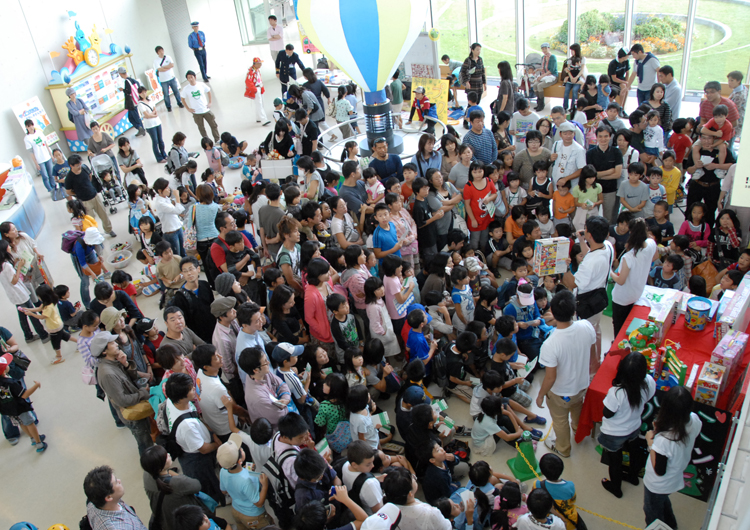
- The program was conducted at a company museum of Tokyo Gas Co., Ltd. annually since 2006 and has been fixed as a popular event
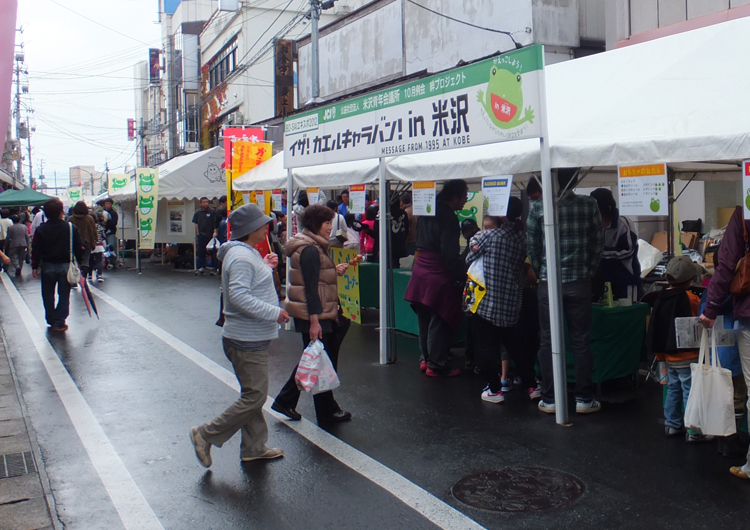
- Program conducted in Yonezawa City, Yamagata Prefecture. The program has been co-hosted by a variety of partner, such as neighborhood associations and schools
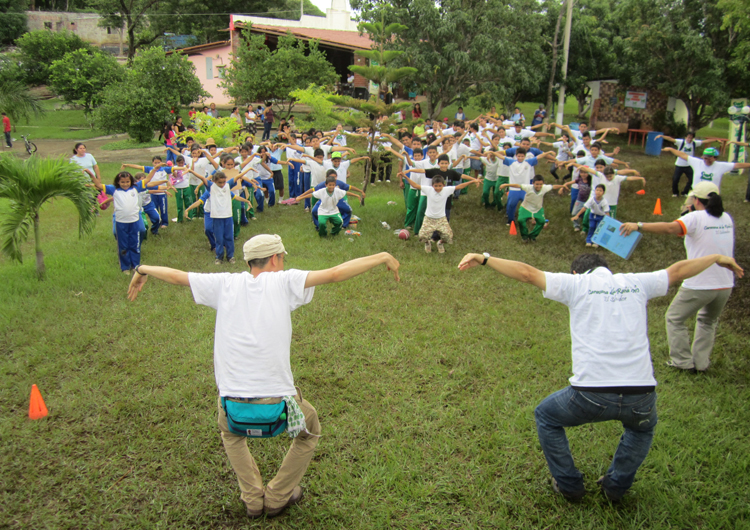
- Program conducted in Guatemala, Latin America
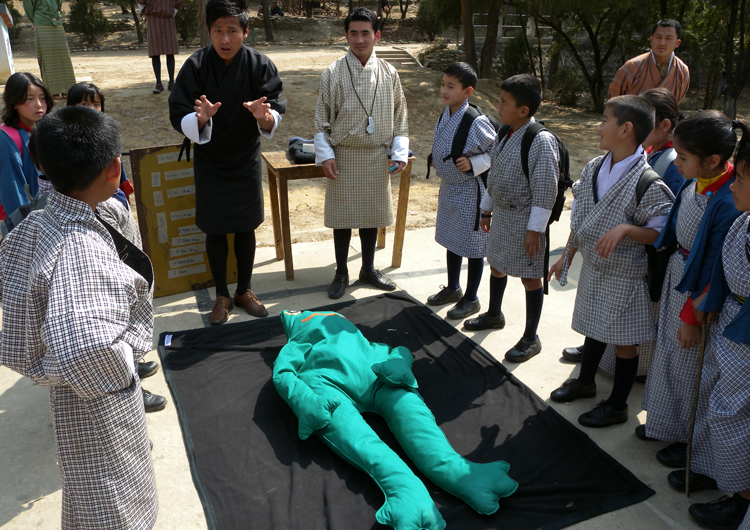
- Program conducted in an elementary school in Bhutan
